| Industry | Aircraft manufacture |
|---|---|
| Founded | 1945 at Parma, Italy |
| Founder | Adriano Mantelli and Livio Agostini |
| Fate | defunct |
| Headquarters | Parma , Italy |
| Products | Ultralight aircraft |
Alaparma was an Italian aircraft manufacturer of the immediate post-World War II period. It was founded in 1945 by designer Capt Adriano Mantelli and Livio Agostini to produce an unusual light aircraft developed by Mantelli during the war, initially as the Tucano and later as the Baldo.
The Aircraft Disposal Company (ADC), or Airdisco, was a British firm established in March 1920 to take advantage of the large number of World War I-surplus military aircraft on the market. The company changed name in 1925 to ADC Aircraft Limited.

No. 683 Squadron RAF was a photo-reconnaissance squadron of the Royal Air Force during the Second World War and from August 1950 to November 1953.
No. 280 Squadron was a Royal Air Force air-sea rescue squadron during the Second World War.
No. 682 Squadron RAF was a photo reconnaissance squadron of the Royal Air Force during the Second World War.
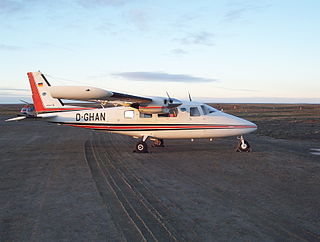
Partenavia Construzioni Aeronautiche was an Italian aircraft manufacturer that specialised in general aviation.

The Alaparma Baldo was an unusual two-seat light monoplane produced in Italy shortly after World War II. Designed by Adriano Mantelli, it featured an egg-shaped fuselage with cabin doors that hinged upwards and to the back. The conventional tailplane with single fin and rudder was carried on twin booms, either side of a pusher engine installation. The undercarriage consisted of a single mainwheel under the fuselage pod, a small tailwheel not far behind it, and outrigger wheels on the wingtips.
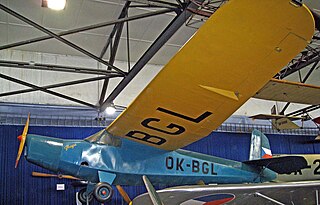
ČKD-Praga was a Czechoslovakian aircraft manufacturer. The company was founded in 1915 as an engine manufacturing company, under the designation Praga. The company started designing aircraft in 1930–31 when the designers Pavel Beneš and Miroslav Hajn came to ČKD-Praga from Avia. Their first aircraft was the Praga E-39 from 1931. It was a military trainer, with a production run of 139 aircraft. ČKD-Praga developed several aircraft over the following years, but none exceeded prototype stage.

Compagnie Française d'Aviation (CFA) was a French aircraft manufacturer of the 1930s and 1940s. It was established in 1936 as a division of the Salmson engine company to handle the mass production of the Cricri light aircraft.
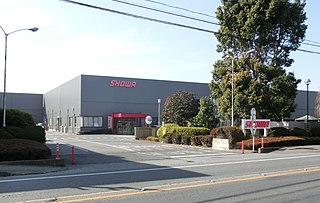
Showa is a brand of high-performance automotive, motorcycle and outboard suspension systems of Hitachi Astemo, based in Gyoda, Saitama in Japan.
No. 575 Squadron RAF was a transport squadron of the Royal Air Force during the Second World War.

The Macchi MB.308, later Aermacchi MB-308, was a light aircraft produced in Italy in the late 1940s.
No. 293 Squadron was a Royal Air Force air-sea rescue squadron. During the Second World War the unit operated search and rescue missions for Allied aircraft operating over Italy.

The Lombardi LM.5 Aviastar was a two-seat light aircraft produced in Italy shortly after the Second World War, followed by a three-seat version called the LM.7.
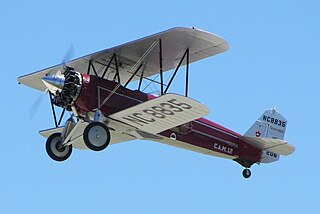
The Stearman C3 was an American-built civil biplane aircraft of the 1920s, designed by Stearman Aircraft of Wichita, Kansas. It was also the first Stearman aircraft to receive a type certificate.

Avions Max Holste was a French aircraft manufacturer formed in 1933 by the French aeronautical engineer Max Holste.

The Globe Aircraft Corporation was an American aircraft manufacturer formed in 1940 in Fort Worth, Texas. It was declared bankrupt in 1947.
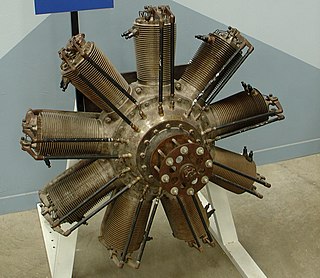
Clerget-Blin was a French precision engineering company formed in 1913 by the engineer and inventor Pierre Clerget and industrialist Eugène Blin. In 1939, the company was absorbed into the Groupe d'étude des moteurs à huile lourde, which was further merged into SNECMA in 1947.

Adriano Mantelli was an Italian aircraft designer who designed the Alaparma Baldo.
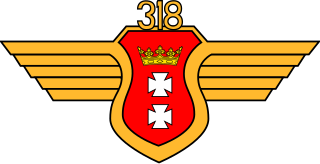
No. 318 "City of Gdańsk" Polish Fighter-Reconnaissance Squadron (Polish: 318 Dywizjon Myśliwsko-Rozpoznawczy Gdański") was a Polish tactical reconnaissance aircraft squadron formed in Great Britain as part of an agreement between the Polish Government in Exile and the United Kingdom in 1940. It was one of several Polish squadrons fighting alongside the Royal Air Force (RAF) during World War II.